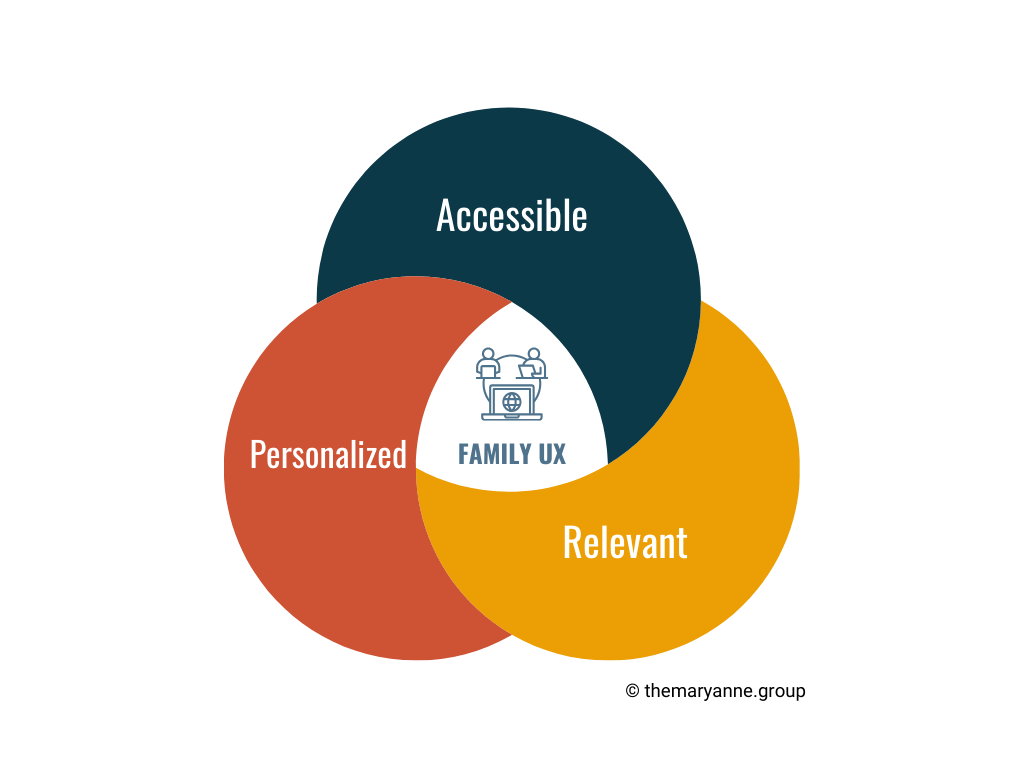Education and Enrollment Marketing Resources
Serving Education Marketing, Communications, and Admissions Professionals

Every school aims to put families at the heart of its marketing and communications strategies and tactics. However, the reality is that the desire for efficiency (often due to an under-resourced MarComm department) coupled with the volume of information that needs to be shared frequently results in a school-centered approach instead. The paradigm is shifting. Driven by the long-held knowledge that educational success comes from a strong school-family partnership, we now recognize the partnership begins from a family’s very first touchpoint, whether digital or in-person. Understanding Family-Centered Communication When families are in the process of choosing a school for their child, they are not just evaluating academic programs or facilities—they are assessing how well the school aligns with their values, needs, and expectations. Similarly, families who are already enrolled continually evaluate their ongoing experience, which influences their decision to stay and advocate for the school. Family-centered communication is the key to meeting these needs at every stage of the journey, from initial inquiry through to enrollment and beyond . During their exploration and research phase, the communication a family receives plays a crucial role in shaping their perception. They are looking for a school that not only provides an excellent education but also understands and supports their entire family and you can be sure they are connecting their communication experience with your school to their perception of the quality of education offered. Effective family-centered communication during this phase should make the process of learning about the school, asking questions, and navigating admissions as seamless and personalized as possible. For example, when a prospective family first inquires about the school, they should be met with clear, accessible information tailored to their needs—whether it’s understanding the curriculum, exploring extracurricular offerings, or learning about community involvement. Timely follow-ups, personalized tours, and content addressing their specific concerns can significantly enhance their experience and make them feel valued. For families already part of the school community, the focus shifts to ensuring they continue to feel engaged, supported, and appreciated. These families need relevant updates that pertain to their child's progress and the overall school environment as well as personalized communication that reinforces their decision to enroll in your school. This type of content should include (but is not limited to) celebrations of new or re-accreditation milestones, thought-leadership content, stories that demonstrate the strategic plan in action, parent education content to help as they guide their child through life and education, and learning stories that offer parents a peek inside the classroom and learning experiences. At the core of this communication approach are three key principles: Accessibility, Relevance, and Personalization. These principles intersect to create a holistic family experience that is integral to effective communication and educational success.

Most schools operate in a highly competitive environment where parents have several options and the supply of schools is often greater than the demand. It goes without saying that attracting new students, engaging current families, and expanding the school’s reputation requires an in-depth marketing and communications plan. However, not all schools have the resources to hire a full-time marketing director or, more frequently, their current Director is at maximum capacity (likely because they are also the communications manager) and need added people-power to accomplish the school’s goals. This is where a Fractional Director of Marketing can make a significant impact. First, let’s looks at what a Fractional Director of Marketing is. What is a Fractional Director of Marketing? A Fractional Director of Marketing (FDoM) is a highly experienced marketing professional who works with an organization on a part-time, contract, or project-based basis. Unlike a full-time employee, a fractional director provides strategic leadership and expertise without the commitment of a full-time role. In this arrangement, a Fractional Director of Marketing integrates with your existing team to either lead the charge entirely, or more frequently, come alongside your existing Director to support in various ways and help the team get to the next level while achieving the school’s overarching goals. This relationship can be short-term or in many cases, the scope of work grows and the school chooses to extend the partnership for a longer term. 10 Ways a Fractional Director of Marketing Can Help Your School 1. Support for an Existing Director of Marketing and Communications Supporting an existing marketing director is one of the most valuable roles a Fractional Director of Marketing can play. Even the most experienced and capable marketing directors can find themselves stretched thin, particularly during peak times or when managing complex projects. A fractional director provides much-needed additional expertise and bandwidth, allowing the in-house director to focus on high-level strategic initiatives while ensuring marketing efforts continue to run smoothly and effectively. Why This Might Help: Even a skilled and experienced marketing director can benefit from additional support, expanded capacity, and a fresh perspective. Use Case: During the hectic admissions season, a fractional director might assist with executing marketing campaigns, freeing up the full-time director to concentrate on strategic planning and stakeholder engagement. 2. Develop and Implement a Comprehensive Marketing Plan One of the more common reasons to engage an FDoM is to work with your school’s leadership team to develop a comprehensive marketing plan that aligns with your school’s strategic goals. Why This Might Help: A marketing plan is your roadmap and just like a long journey, it takes time and effort to plan. However, without one your tactics will be fragmented and reactive, making it a necessary investment of resources. This investment may be beyond your existing team's capacity which is where an FDoM can help. Use Case: A fractional director might develop a multi-year marketing plan for an school looking to increase enrollment by 20%. This plan could include a detailed situational analysis, digital strategy, content development calendar, and metrics for measuring success. 3. Mentorship and Professional Development A Fractional Director of Marketing can also serve as a mentor to less experienced marketing staff. By working closely with the in-house team, they can share their knowledge, introduce best practices, and provide professional development opportunities. This can elevate the skills of the entire marketing department, leading to better long-term outcomes. Why This Might Help: By mentoring less experienced staff, a fractional director elevates the overall skill level of your marketing team. This leads to more effective campaigns and better long-term outcomes. Use Case: They may hold regular training sessions and workshops to equip your team with the skills needed to implement new strategies and technologies or be available via email or video call to answer questions and guide the team on best practices. 4. Oversee Digital Marketing and Communications An FDoM brings the expertise needed to enhance your school’s digital presence, overseeing everything from social media and email marketing to website content. Their role ensures your school’s online presence is not only cohesive but also strategically aligned with your goals. Why This Might Help: Outside of word-of-mouth, your school’s digital touchpoints are usually the first point of contact for prospective families. A fractional director ensures that all digital channels are optimized to attract and engage your target audience, driving higher conversions and deeper engagement. Use Case: They could conduct a comprehensive audit of the school’s digital assets, identifying gaps in content, user experience, and SEO, then implement targeted improvements to boost visibility and engagement across all online platforms. 5. Scale Marketing Efforts As schools grow or undertake significant new initiatives—such as expanding campuses or adding a new program—they may need to scale their marketing efforts quickly. An FDoM can provide the necessary strategic oversight and additional resources to ensure these initiatives are executed successfully. Why This Might Help: Rapid growth or new initiatives demand swift, strategic marketing responses. A fractional director brings the expertise to scale your efforts efficiently, ensuring that your school’s message reaches the right audience at the right time. Use Case: For a new campus launch, a fractional director could lead an integrated marketing campaign that encompasses digital advertising, community engagement, and public relations to drive awareness and attract prospective students. 6. Resource Flexibility Schools face varying demands on their marketing resources throughout the year, driven by factors like recruitment cycles and special projects. A Fractional Director of Marketing provides the flexibility to increase support during busy periods and reduce involvement when things quiet down. Why This Might Help: This flexibility allows schools to efficiently manage marketing resources, ensuring that efforts are intensified when needed most, without the long-term commitment of a full-time hire. Use Case: During peak enrollment season, a fractional director can take the lead on ensuring timely delivery of all marketing materials, then step back as the demand decreases, providing just the right amount of support at the right time. 7. Temporary Leadership Gap When a school's marketing department faces a leadership gap due to transitions, leaves, or departures, a fractional director can step in to maintain continuity and stability until a permanent replacement is found. Why This Might Help: A fractional director ensures that your marketing initiatives continue smoothly during leadership transitions and that your remaining team members have the direction and leadership they need, preventing any disruption in your school’s marketing efforts. Use Case: If a marketing director goes on an extended leave, a fractional director could oversee ongoing campaigns, keeping the team aligned and focused on achieving their goals with regular meetings via video conferencing, email communication, and project management tools. 8. Need for Specialized Expertise Schools often require specialized marketing skills that their existing staff may not possess, such how to automate their existing admissions inquiry process. With their expertise and experience with many internationals schools, an FDoM can help elevate the school’s position in the market. Why This Might Help: Choosing an FDoM with specialized expertise allows your school to streamline processes and system to, improve prospective family engagement, and ultimately enhance your school’s competitive edge. Use Case: A school aiming to automate its admissions inquiries might engage a fractional director to design and implement an automated email nurturing campaign, ensuring timely and personalized follow-ups with prospective families. This approach not only saves time but also increases conversion rates. 9. Focus on Strategic Projects Certain marketing projects require dedicated attention and specialized expertise that your in-house team may not have the capacity to handle. An FDoM can take the lead on these high-impact initiatives, ensuring they are executed effectively and on time. Why This Might Help: Strategic projects like website rebuilds, new video productions, or content marketing plans are critical to your school’s brand and outreach efforts. A fractional director brings the project management and implementation skills along with the creative vision needed to drive these initiatives to success without disrupting your team’s daily operations. Use Case: If your school is planning to launch a new website, a fractional director could manage the entire project—from brainstorming design concepts to overseeing the development process—ensuring the final product is engaging, user-friendly, and aligned with your school’s brand. Similarly, they could lead the production of a new school video, coordinating with creative teams and ensuring the messaging resonates with your target audience. 10. Objective External Perspective Bringing in an external professional can provide an objective perspective, free from internal biases and assumptions. This can be especially valuable for schools looking to assess and improve their current marketing efforts, as a fractional director can identify areas for improvement that might be overlooked by internal staff. Why This Might Help: With an outsider's perspective, a fractional director can challenge the status quo and introduce new ideas that drive positive change. Their ability to objectively evaluate your marketing tactics ensures that your strategies remain relevant, effective, and aligned with the school's goals. Use Case: If a school is facing declining enrollment, a fractional director could conduct a thorough review of the existing marketing efforts, uncovering hidden weaknesses and suggesting creative approaches to engage and attract prospective families more effectively. A Fractional Director of Marketing offers schools a powerful blend of expertise, flexibility, and strategic insight. Whether your school is looking to scale its marketing efforts, navigate leadership transitions, or tackle specialized projects, an FDoM can provide the support needed to achieve your goals without the commitment of a full-time hire. By integrating seamlessly with your existing team, they bring fresh perspectives, specialized skills, and the ability to adapt to your school’s unique needs. In an environment where the right marketing strategy can make all the difference, a Fractional Director of Marketing is not just an added resource, but a strategic partner in driving your school’s success. By leveraging their expertise, your school can confidently face the challenges of the market, enhance its reputation, and build lasting relationships with students and families.

The Art of Engagement: Using Marketing Automation to Create a Nurturing Family Admissions Experience
We are more connected than ever, yet our connections are often anything but personal. The digital revolution has given us unfettered access to Information. A quick search of the internet results in thousands–if not millions–of answers to any question we may have. This has resulted in families taking charge of their research process. Gone are the days of families reaching out to your school at the beginning of their journey; they are taking charge of their research process when considering educational options for their children. Amidst this shift, schools often struggle to actively nurture families through their exploration. However, marketing automation offers a solution, enabling schools to engage with families in a personalized and meaningful manner. In this blog post, we'll delve into how marketing automation can bridge the gap, ensuring families feel valued, understood and known throughout their decision-making journey. Understanding a Family’s Unique Journey It is essential to understand the journey families undertake when considering a school for their children. Spoiler Alert: It’s not a one-size-fits-all approach. Yes, your website needs to speak to all families, however, the journey you create for each family group (persona) is different. From the initial research phase to the final enrollment decision, families go through various touchpoints where they seek information, reassurance, and guidance. By mapping out this journey, schools can identify key opportunities to engage with families and provide them with the support they need. Personalized Communication One of the most powerful aspects of marketing automation is its ability to deliver personalized communication at scale. By leveraging data insights and segmentation, schools can tailor their messages to the specific needs and interests of each family. When content is personalized, families begin to develop a deeper connection to the school because they feel understood and known, even if they haven’t spoken to a human yet.






